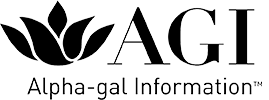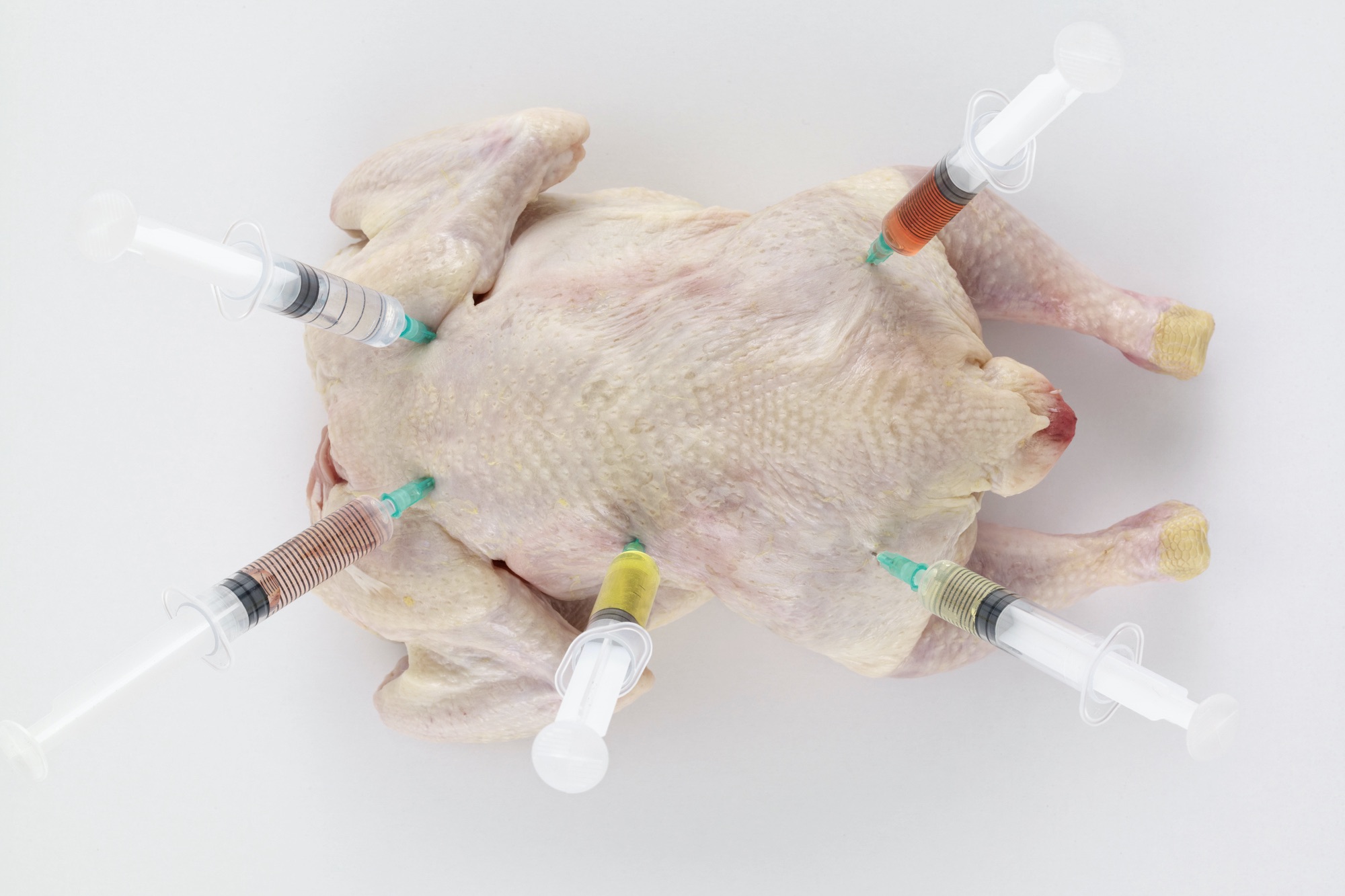Carrageenan
A Guide for People with Alpha-gal Syndrome
Overview
Carrageenans are a family of linear sulfated polysaccharides that are extracted from red algae (red seaweed). Although carrageenans are not made from mammals, they contain the alpha-gal epitope (1). At least 1-2% of people with alpha-gal syndrome (AGS) report reacting to carrageenan (2). It is possible that the actual number is much higher. Many people fail to connect their reactions to carrageenan, attributing them to dairy. For example, multiple reports of reactions to the Dairy Queen Blizzard have been attributed to the blizzard’s dairy content, but blizzards also contain carrageenan. There isn’t much in the literature about carrageenan reactions in people with AGS, but you can read about them here. Reactions can be severe and onset can be rapid.
- Carrageenans are widely used in the food industry as:
- Ingredients, for their gelling, thickening and stabilizing properties
- Processing aids, as when used in the clarification of beer and juice
- Coating materials, as when sprayed on cut organic fruit
- Water retention agents, as when applied to fish prior to processing
- Functional agents, as when used in the production of cheese
- Clarifiers and heat stabilizers, for example, in wine
- Carrageenans are also used in medications, medical products, personal care and household products.
- Many red algae produce carrageenans (6,9), notably those in the order Gigartinales. Some edible red algae, like dulse, are in this group and contain carrageenan.
- Nori and agar agar do not seem to be commonly derived from a red algae in the order Gigartinales. It’s unclear whether they may contain any polysaccharides that include the alpha-gal linkage. Many people with AGS report tolerating them, but there are also some reports of reactions.
Sources of Carrageenan
Many red algae (Rhodophyceae) produce carrageenans, but commercially extracted carrageenan tends to extracted from:
- Betaphycus gelatinum (formerly Eucheuma gelatinae)
- Chondrus crispus (commonly known as “Irish Moss”)
- Chondrus ocellatus.
- Eucheuma denticulatum (formerly Eucheuma spinosum and commercially known as “spinosum”)
- Furcellaria sp.
- Gigartina canaliculata
- Gigartina skottsbergii
- Other Gigartina sp.
- Hypnea musciformis
- Kappaphycus alvarezii (formerly Eucheuma cottonii and commercially known as called “cottonii”)
- Mazzaella laminaroides (formerly Iridaea laminaroides)
- Mastocarpus stellatus (formerly Gigartina stellata)
- Sarcothalia crispata (formerly as Iridaea ciliata)
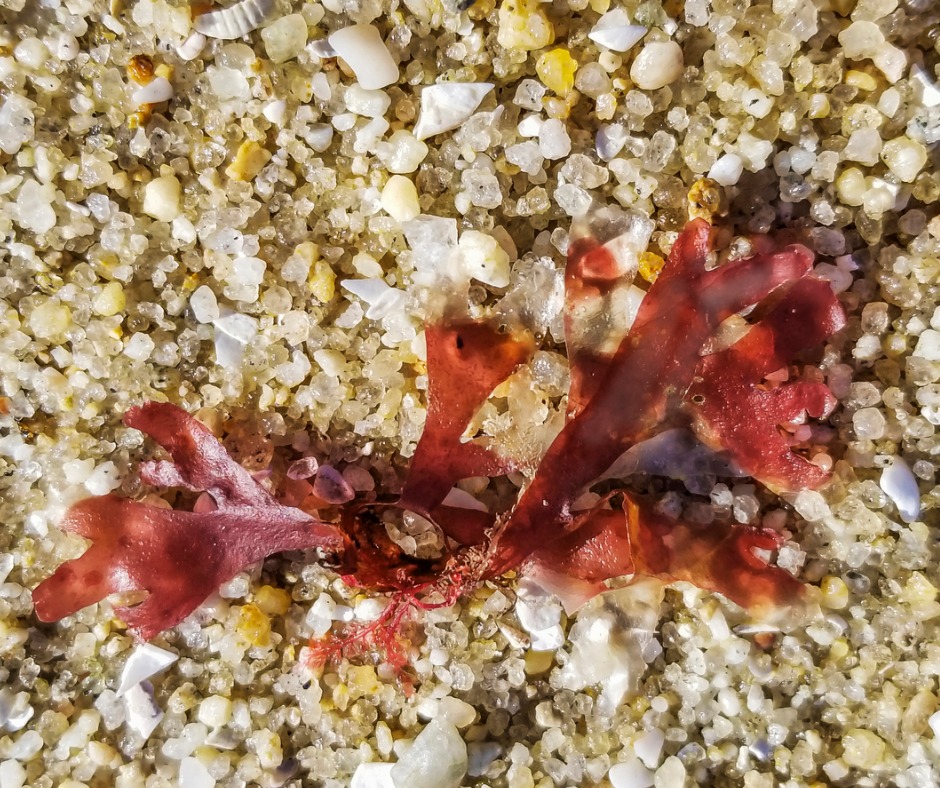
Irish Moss
Other Names for Carrageenan
Common Names for Carrageenan
These are some common names for carrageenan. The database below includes many more.
- PES (processed Eucheuma seaweed)
- Carageenan gum
- Chondrus
- Carrageenin
- Irish Moss
- Irish Moss Extract
- Irish Moss Gelose
- Vegetable Gelatin
- Norsk Gelatin
- Danish Agar
- Carastay
- Carastay C
- Eucheuma spinosum gum
- Marine colloids
- Red seaweed (Rhodophyceae) extract
Synonyms/Trade Names for Carrageenan in Foods, Medicines, Medical and Personal Care Products
Foods Made with Carrageenan
Many foods contain carrageenan. Unfortunately, carrageenan is often added to foods that people with AGS rely on. It is especially common in vegan foods, to which it is added in place of animal fat for its emulsifying properties and to create a smooth, creamy, mouth-feel. It is also frequently added to poultry products, either injected directly into raw poultry or added to deli meats to improve their texture and increase their retention of water (5). In general, larger amounts of carrageenan are injected into poultry than are added to dairy (5). Anecdotal reports suggest that rotisserie chicken is especially likely to be injected with carrageenan.
If you react to carrageenan always check labels, and be especially careful with low-fat, vegan dairy substitutes, dry mixes, low-fat products, and products that have a creamy texture.
Foods that commonly contain carrageenan include, but are not limited to:
- Many dairy products, including ice cream; milk shakes, like Dairy Queen blizzards; yogurt; flavored, evaporated, and condensed milks; whipped topping; cheeses; and sour cream (76)
- Many dairy-free dairy substitutes including vegan cheese, plant-based milk, dairy-free ice cream, etc. (2)
- Beverages, including high protein and extended life products
- Other beverages, such as beer, juice and wine may be clarified using carrageenan (7)
- Beverage mixes such as powdered lemonade, fruit punch, cocoa, breakfast drinks, and instant cappucino (7,8)
- Candy (6,7,8)
- Condiments, including mayonaisse, and relishes (7,8)
- Desserts, including flans, custards, cream puddings, mousse, sorbet, gelato, and gel desserts (6,7)
- Other dry mixes, including baking mixes, dip mixes, pancake mixes, pudding mixes, pie filling mixes, and soup mixes (8)
- Infant formula (7)
- Jams and jellies (6,7)
- Juices (6,7)
- Marshmallows, vegan
- Poultry products, including both raw and cooked (7)
- Ready to spread icings (6,7)
- Salad dressing (7,8)
- Seafood, such as fish treated with carrageenan to improve moisture retention (7)
- Tofu (7)
When carrageenan is used as a processing aid, for example when used to clarify beer and juice, as a spray on fresh cut fruit, or on fish to aid in retention of moisture, the FDA does not require that it be listed on labels (10).
As with gelatin, carrageenan in medical products has a greater potential to cause serious reactions and needs to be considered separately.
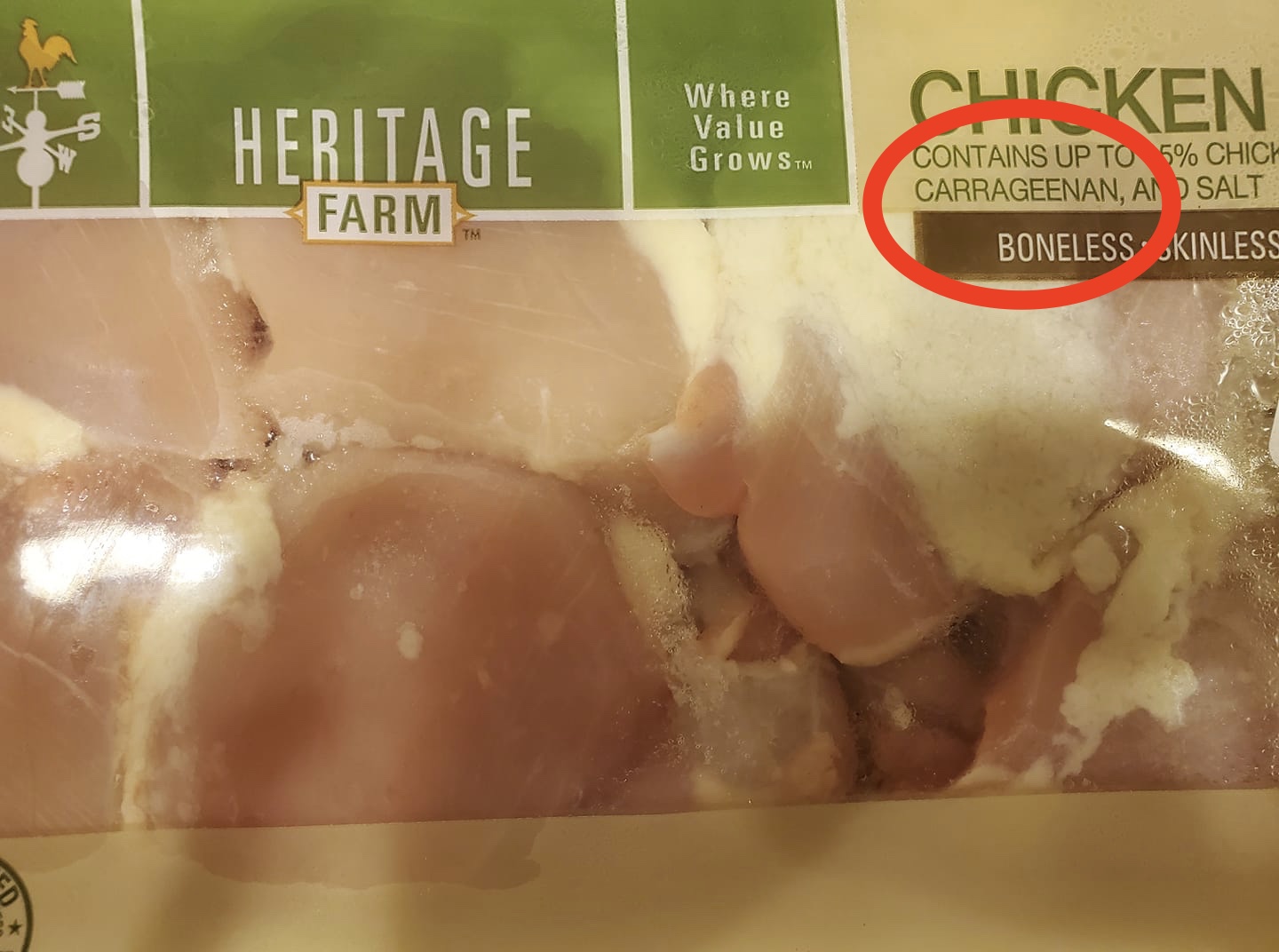
Uncooked poultry products are often injected with carrageenan
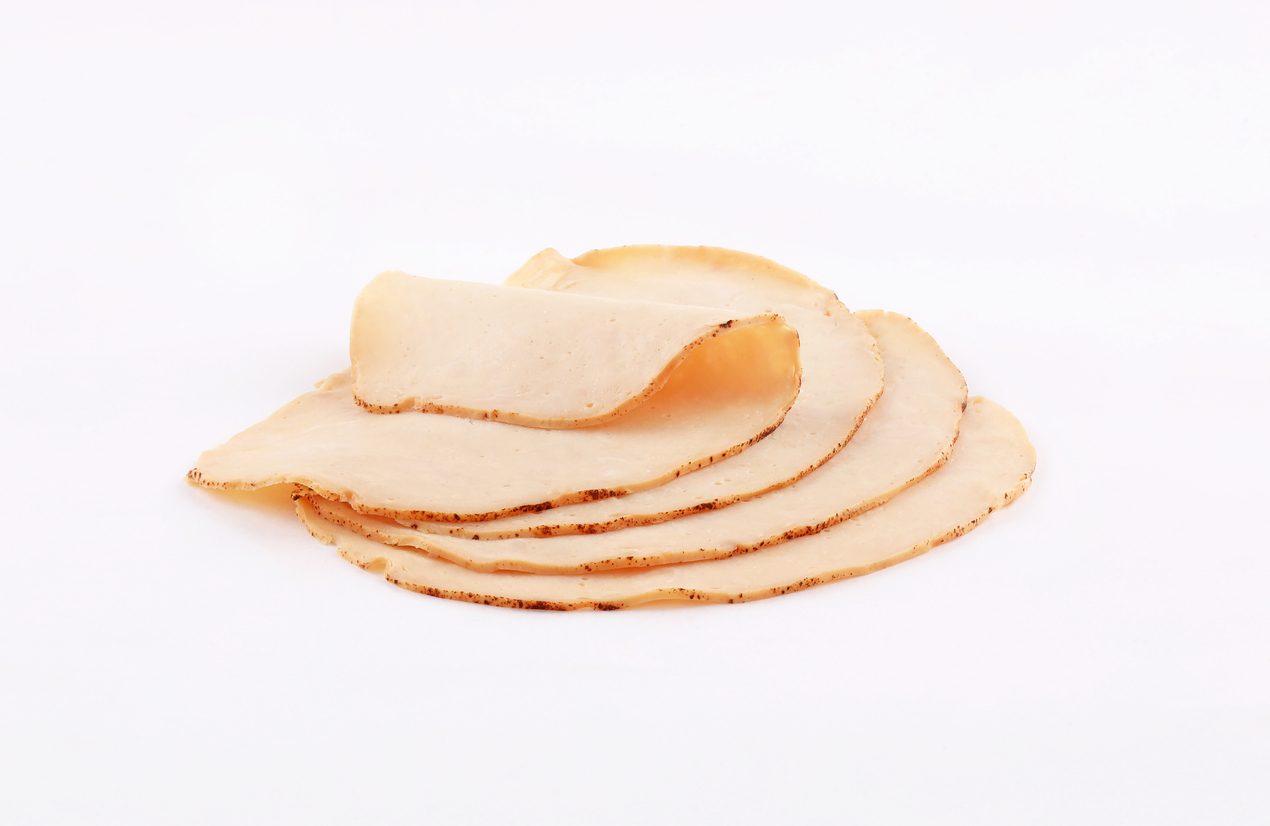
Cooked poultry products are often impregnated with carrageenan
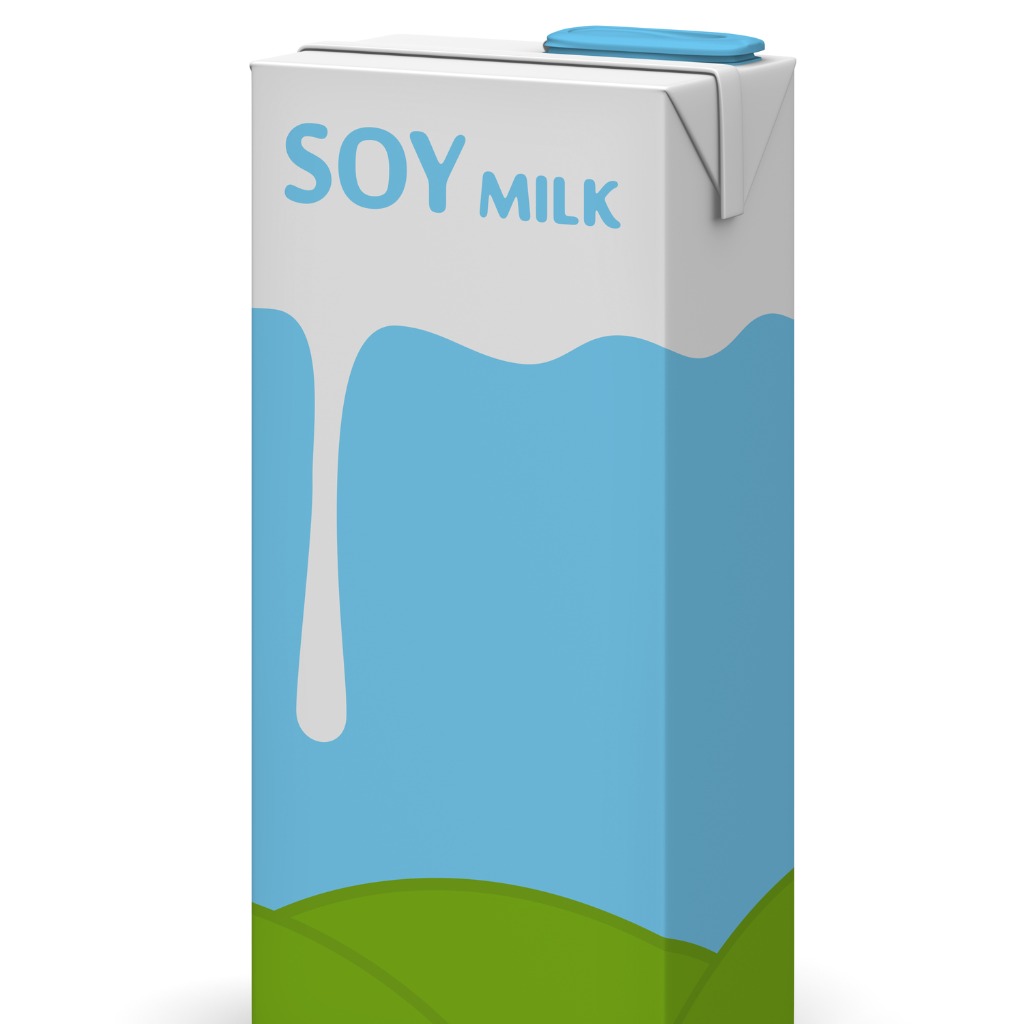
Many dairy-free products contain carrageenan

Fish may be treated with carrageenan

Dairy-free ice cream and gelato often contain carrageenan
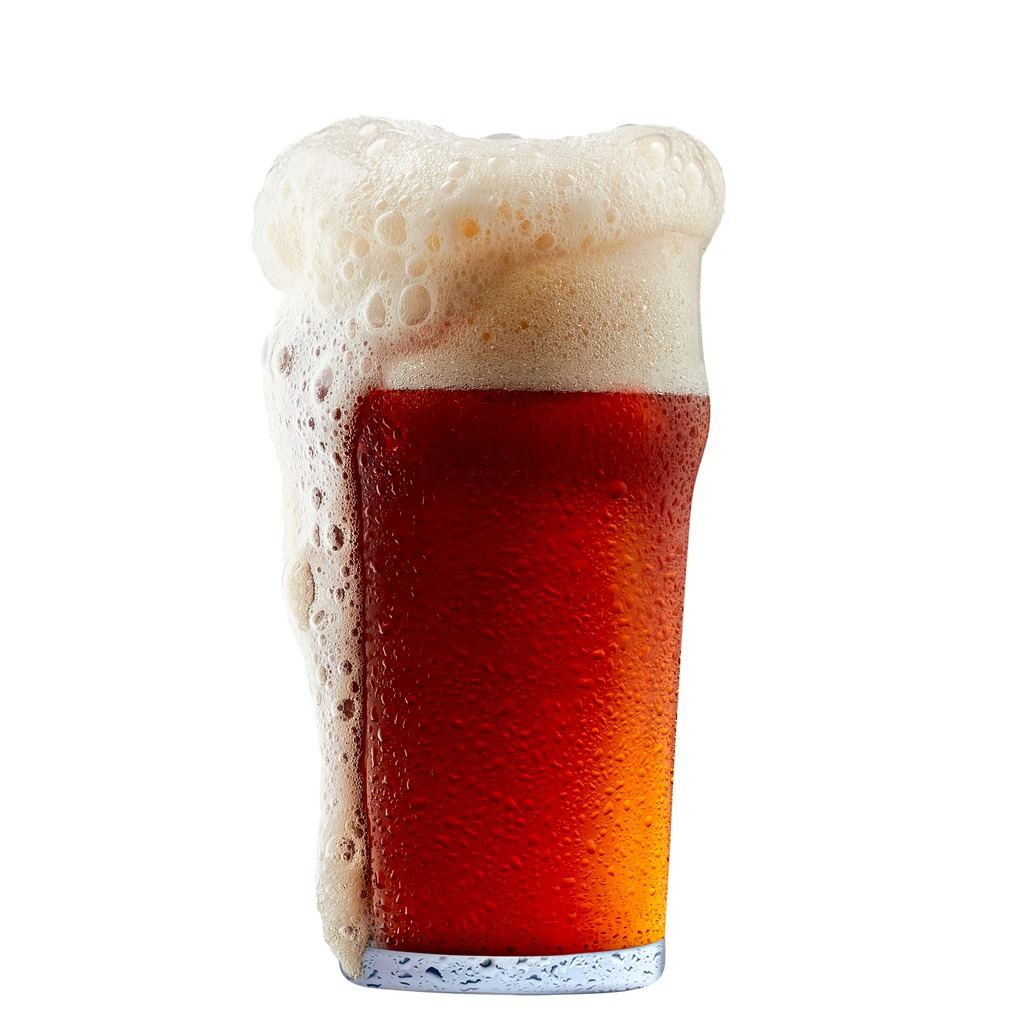
Carrageenan is often used to clarify beer and other beverages. It's not listed on the label.
Examples of Foods That Can Contain Carrageenan (Not a Comprehensive List)
Sources:
1. USDA Carrageenan Handling/Processing
2. McHugh DJ. A guide to the seaweed industry.
3. Zhang H, Zhang F, Yuan R. Applications of natural polymer-based hydrogels in the food industry. InHydrogels Based on Natural Polymers 2020 Jan 1 (pp. 357-410). Elsevier.
4. Chauhan PS, Saxena A. Bacterial carrageenases: an overview of production and biotechnological applications. 3 Biotech. 2016 Dec 1;6(2):146.
Drugs, Medical Products, and Supplements
Currently, we are not aware of any literature dealing with risks to people with AGS related to medical products containing carrageenan much less data that could be used to assess relative risks related to different forms and amounts of carrageenan in these products. However, some people with AGS report reactions to carrageenan in food and the risk cannot be ruled out. More research is needed.
Points to consider include:
- Any reactions that do occur may vary from individual to individual.
- Route of administration (parenteral vs non-parenteral) may influence the likelihood of reactions, as is the case with gelatin.
Please consult your physician for advice.
Medications other medical products
We have limited information about carrageenan in medications and medical products, but products which may contain it include:
- Numerous medications, both as an active ingredient (for example, in cough remedies, laxatives and medications for other intestinal issues) and as an inactive ingredient, including
- Antibiotics, including some tetracyclines
- Barium sulfate slurries (in the form of poligeenan)
- Bone graft substitutes, entrapping vessels such as biobeads and encapsulation vehicles for drug delivery, hydrogels, and nasal sprays
- Wound dressings
- Tissue engineering products
- Surgical lubricants
- Lubricant gels used to help prevent the transmission of HIV and HPV, such as Caraguard (PC 515)
- Contrast media, including Liquid Polibar.
- Barium enemas
- An unknown number of other medications and medical products
This is list is far from complete, as we were not able to find list of pharmaceuticals and other medical products that contain carrageenan. If you know of one, pls contact us at alphagalinformation@gmail.com
Sources:
- Drugs.com: Carrageenan
- Cargill: Carrageenans
- Sciencing: Products Made from Seaweed
- Kim SK, editor. Marine glycobiology: Principles and applications. CRC Press; 2016 Oct 14.
- Wikipedia: Poligeenan
- McKim JM, Willoughby Sr JA, Blakemore WR, Weiner ML. Clarifying the confusion between poligeenan, degraded carrageenan, and carrageenan: A review of the chemistry, nomenclature, and in vivo toxicology by the oral route. Critical reviews in food science and nutrition. 2019 Oct 28;59(19):3054-73.
- Sigma Aldrich
- Faam Zarin
- Zia KM, Tabasum S, Nasif M, Sultan N, Aslam N, Noreen A, Zuber M. A review on synthesis, properties and applications of natural polymer based carrageenan blends and composites. International journal of biological macromolecules. 2017 Mar 1;96:282-301.
- NIH NCI HPV Vaccine Fact Sheet
- NLM Clinical Trials: Carraguard
- Caballero ML, Quirce S. Immediate Hypersensitivity Reactions Caused by Drug Excipients: A Literature Review. J Investig Allergol Clin Immunol. 2020 Apr 1;30(2):86-100.
- Tarlo SM, Dolovich J, Listgarten C. Anaphylaxis to carrageenan: A pseudo–latex allergy. Journal of allergy and clinical immunology. 1995 May 1;95(5):933-6.
Dietary Supplements
Many dietary supplements contain carrageenan. A database of supplements containing carrageenan can be found in the Dietary Supplement Label Database. Please consider this database a starting point. No database is complete. Product ingredients change. You must check labels yourself.
Personal Care and Household Products
Personal care products
- Many toothpastes
- This is the most problematic source of carrageenan in personal care products for many of us.
- Liquid soaps and other cleansers
- Skin care products, including moisturizers, lotions and creams, masks, serums, cleansers, shaving cream, sunscreen and more
- Eye creams
- Body washes
- Hair products, including shampoo, conditioner, and hair serums
- Make-up, including foundation, bronzers, and highlighters
- Personal lubricants
See the Environmental Working Group’s Skin Deep database for more information about personal care products that contain carrageenan.
Sources:
- USDA Carrageen Handling/Processing
- Environmental Working Group’s Skin Deep
- Cosing— CosIng is the European Commission database for information on cosmetic substances and ingredients
- Wikipedia: Carrageenan
- Dream Brands
Household products
We lack information on carrageenan in household products, but some products containing carrageenan include:
- Cleaning products
- Pet food
- Air fresheners, including products made by Air Wick, Renuzit, and Glade
- Shoe polish
Other
- Fire-fighting foam
- Various industrial uses
Resources
Smart Label
SmartLabel® is a tool that gives consumers a way to digitally access more detailed product information than could ever fit on a package label about a wide range of food, beverage, supplement, household, pet care, personal care, and over-the-counter products. It is fast and easy to use, with a consistent digital format that shares accurate data directly from the manufacturer in real-time.
Consumers will be able to find detailed information about products in several different ways. They can access SmartLabel® by searching the web; visiting a participating company’s or brand’s website; scanning a SmartLabel® QR or digital code on packages; or using the SmartLabel® Product Search on this site. There is also a certified app to access SmartLabel® information, which can be downloaded on your smartphone. Simply go to your app store, and search for “SmartLabel®.” The SmartLabel® app will be the first result to pop up. People can access SmartLabel® and its information whether they are in the store, at home, or at work, and by using a smart phone, tablet or desktop computer.
NIH Dietary Supplement Label Database
Environmental Working Group: Skin Deep Database
Cornucopia Shopping Guide to Avoiding Organic Foods with Carrageenan
Primary References
1. Tobacman JK. The common food additive carrageenan and the alpha-gal epitope. Journal of Allergy and Clinical Immunology. 2015 Dec 1;136(6):1708-9.
2. Commins SP. Diagnosis & management of alpha-gal syndrome: lessons from 2,500 patients. Expert Review of Clinical Immunology. 2020 Jul 9:1-1.
3. Apostolovic D, Tran TA, Hamsten C, Starkhammar M, Cirkovic Velickovic T, van Hage M. Immunoproteomics of processed beef proteins reveal novel galactose‐α‐1, 3‐galactose‐containing allergens. Allergy. 2014 Oct;69(10):1308-15.
4. USDA Carrageenan Handling/Processing
5. McHugh DJ. A guide to the seaweed industry.
6. Chauhan PS, Saxena A. Bacterial carrageenases: an overview of production and biotechnological applications. 3 Biotech. 2016 Dec 1;6(2):146.
7. USDA Carrageenan Handling/Processing
8. Zhang H, Zhang F, Yuan R. Applications of natural polymer-based hydrogels in the food industry. InHydrogels Based on Natural Polymers 2020 Jan 1 (pp. 357-410). Elsevier.
9. Usov AI. Polysaccharides of the red algae. Adv Carbohydr Chem Biochem. 2011;65:115-217.
10. What’s the Controversy Over Carrageenan? The Cornucopia Institute. Accessed Oct 3, 2023.
All the information on alphagalinformation.org is provided in good faith, but we, the creators and authors of the Alpha-gal Information website offer no representation or warranty, explicit or implied, of the accuracy, adequacy, validity, reliability, availability, or completeness of any information on this site. Under no circumstances should we have any liability for any loss or damage incurred by you as a result of relying on information provided here. We are not physicians or medical professionals, researchers, or experts of any kind. Information provided in this website may contain errors and should be confirmed by a physician. Information provided here is not medical advice. It should not be relied upon for decisions about diagnosis, treatment, diet, food choice, nutrition, or any other health or medical decisions. For advice about health or medical decisions including, but not limited to, diagnosis, treatment, diet, and health care consult a physician.
READ FULL DISCLAIMER>
